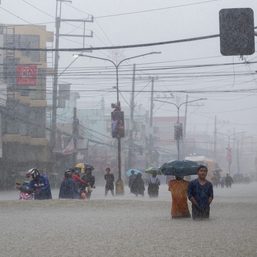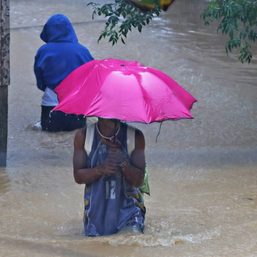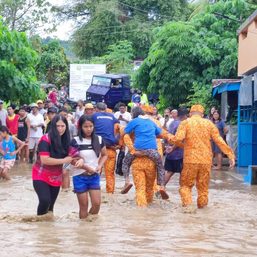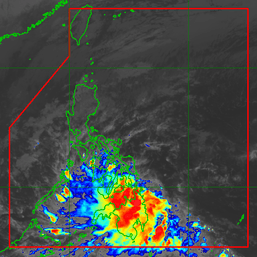SUMMARY
This is AI generated summarization, which may have errors. For context, always refer to the full article.
![[OPINION] Remembering Reming](https://www.rappler.com/tachyon/2020/11/ispeak-remembering-reming-1.jpg)
One of my earliest memories was getting picked up from bed and spending the night in a Mormon church because our house was already flooded. The power was out. The wind was howling. The rain was coming from everywhere.
In my small town, children do not get to celebrate class suspensions from storm signals and alert levels on volcanic activity. At an early age, these dangers are actually made known to us.
The house I grew up in had a wide yard that would fill up with rainwater every time a typhoon hit, which was quite often. As a small child, I didn’t quite understand why there would be fish in the floodwater in our home. I thought they came down as the rain poured. I asked my father, who then explained to me how drainages and canals worked, and how we lived in a low-lying area.
Growing up, we had a system. We would pull out the bottom drawers of our shelves and place them atop chairs and stools. We had a small wooden footbridge from our front door to the gate. We had waterproof plastic containers for all our clothes. You could see water lines on our furniture and walls and anything below that would have to be lifted. Many people in our town had generators, but we couldn’t afford one so every lightbulb in our home acted as an emergency light that would turn on as soon as the power went out.
But nothing quite prepared us for Super Typhoon Reming in 2006. I was 14 then, and among all of the typhoons we’ve had to endure, Reming was the only one that made me fear for my life.
We lost power for 2 months. Food, even potable water, was hard to get. Trucks piled with dead bodies would drive past our home every afternoon. I will never forget that stench of rot and dirt.
The first day I went outside, I saw the body of a girl my age, muddied, stripped down to her underwear, being pulled out of debris.
At the town plaza, a liitle ways beside the huge machine pumping drinking water for evacuees, there were about 20 to 30 dead bodies lined up on top of black body bags, like they were crops that needed to be dried. If nobody claimed them as relatives in the next few hours, they would be placed inside the body bags, thrown inside a truck, and driven to the mass grave at the cemetery. Then a new batch of dead bodies would be lined up.
No later than a week after the storm hit, I saw hordes of people heading towards the hills behind our home. There were so many of them. Some were on foot, others inside crowded vehicles. All frantic, all confused. Some thought they were running away from a tsunami. Others thought they were running from lahar. Others thought they were running to a relief mission. None of them were right. Many valuables were lost in that scare. Houses were broken into. Stores were looted. This was the first of many mass hysterias that happened in our town.
Months later, when school started again, the numbers that we heard on the radio began to have faces. The horror stories were given names.
The total number of deaths was estimated at 1,200. But as someone who has lived through it, and known of entire families being washed away with no survivors able to report them as missing, I know the actual number far exceeds the estimate.
This should not be a story of strength and resilience. It is a story of government incompetence and negligence. It is a story of environmental neglect. It is a story that should never happen again. – Rappler.com
Ana Catalina S. Paje is a BS Development Communication graduate working in a non-profit organization. She believes that disaster risk reduction management should not be reactionary in nature. Climate change adaptation should merit primacy, especially in a country with such a high vulnerability for natural disasters.
Add a comment
How does this make you feel?
![[OPINION] Why a Department of Disaster Resilience should not be created](https://www.rappler.com/tachyon/2020/11/imho-ddr.jpg?fit=449%2C449)





There are no comments yet. Add your comment to start the conversation.